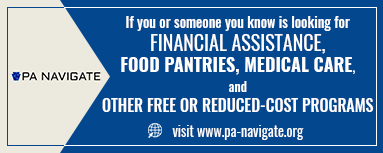Perhaps you know someone among your family, friends, or co-workers who is struggling with depression, anxiety, bipolar disorder, or some other mental health condition. If so, you should be prepared to assist in the case of a mental health crisis. Bucks County offers many services that can help a person in a time of need, but they can’t help if no one knows about them. So become educated on the options and try to help your friend or loved one be prepared, as well.
Have a WRAP
The National Alliance on Mental Illness (NAMI) recommends that you and your loved one have a Wellness Recovery Action Plan (WRAP), a list of information needed in the case of an emergency. That should include:
- Phone numbers for your loved one’s therapist, psychiatrist, and other healthcare providers
- The 988 Suicide & Crisis Lifeline: Dial or text 988 at any time from anywhere in the country for access to trained personnel who can talk people through their crisis and connect them with local agencies that can provide immediate help.
- Other local crisis line numbers, such as the NAMI Bucks County Helpline, (866) 399-NAMI (6264) from 10am-10pm, and an Emotional Support Warmline, (215) 353-3055 (press 1) from 3pm-10pm daily, or text NAMI to 741741 any time, 24/7
- Addresses of walk-in crisis centers or emergency rooms near you. Lenape Valley Foundation offers walk-in crisis services in a variety of locations and will respond to emergencies 24/7. Call (800) 499-7455 anytime.
- Phone numbers of family members or friends who would be helpful in a crisis
- Your address and phone number(s)
- Your loved one’s diagnosis and medications
- Information about previous psychosis or suicide attempts
- History of drug use
- A list of triggers
- Information about things that have helped in the past
If your friend or loved one sometimes becomes acutely ill, NAMI recommends considering a Psychiatric Advance Directive, in which the person, while in a competent state, signs a document with directions on what he or she would like done should he or she become unable to make decisions due to a mental health event. This is something the person should discuss with loved ones.
How to respond in a crisis situation
Signs of an emotional breakdown or mental health crisis may include:
- Sudden depression or extreme mood swings
- Agitation
- Inability to complete basic functions
- Sudden loss of emotional reaction, numbness
- Withdrawal from others
- A disconnect with reality, confusion, or strange statements
- Paranoid thoughts or behaviors
- Inability to stay still, pacing, agitated movement
- Statements about self-harm or harming others, or acting on these thoughts
If you see any of these behaviors, try to be supportive. Don’t label or dismiss or try to brush aside what the person is feeling. Statements like “Oh, he’s just having a nervous breakdown” are, at the same time, labeling and dismissive. Trying to be unusually cheerful or arguing with the person that things aren’t that bad denies the reality of what the person is experiencing.
When the crisis is occurring, create a safe environment by decreasing excessive stimulation and creating a calm space. Ask how you can help. Listen to the person and let him or her express what he or she is feeling. Try not to offer what you think is helpful advice while the person is sharing. At an appropriate time, you may ask if he or she has ever spoken to a professional who can help work out these feelings. If you have a WRAP, you will be able to offer to help the person reach out to one of the local help lines or offer to drive your loved one to a crisis clinic nearby.
If you believe the person might harm himself or others, it’s important to immediately call for emergency backup. Call 911, 988, or the Lenape Valley Foundation for immediate help from professionals.
Remember to treat a person in crisis with compassion and patience. Be aware of the various services that can provide the needed support so that your friend or loved one can get the necessary help to work through the crisis and begin a path to recovery.





